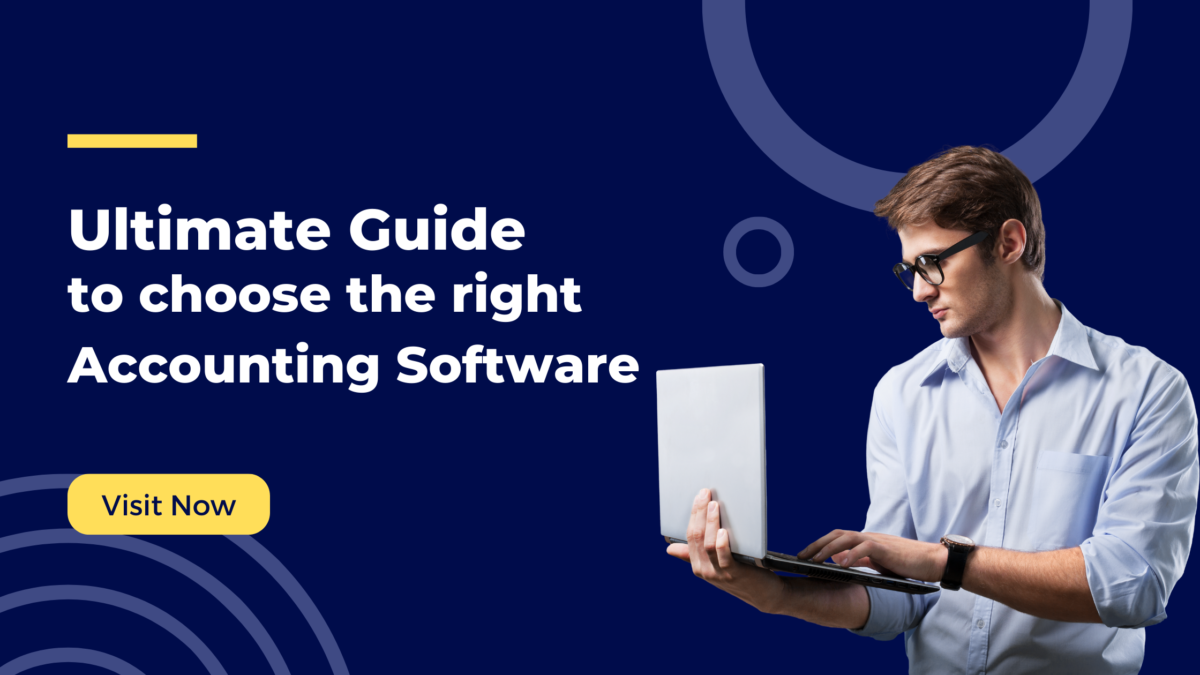Top Tips for Choosing the Ideal Accounting Software Solution

In today’s fast-paced business world, efficient financial management is crucial. However, manually handling accounting tasks can be time-consuming and error-prone. Fortunately, accounting software provides a streamlined solution, automating processes and ensuring accurate record-keeping. Nevertheless, with a plethora of options available, selecting the best accounting software can be daunting. This comprehensive guide offers useful advice to help you make an informed decision to choose the right accounting software for your business.
Understand Your Business Requirements
Before embarking on your search, take the time to assess your business requirements thoroughly. Firstly, consider the size of your organization and the number of users who will access the software. Additionally, evaluate the complexity of your financial operations, including invoicing, inventory management, payroll processing, and tax compliance. Furthermore, determine whether you need industry-specific features or integrations with other software solutions you currently use.
Cloud-Based or On-Premise Solutions
One of the primary decisions you’ll face is choosing between cloud-based and on-premise accounting software. Cloud-based solutions offer accessibility from anywhere with an internet connection, automatic updates, and reduced IT infrastructure costs. On the other hand, on-premise software provides greater control over data security and customization options, but requires upfront hardware investments and regular maintenance.
User-Friendliness and Ease of Use
Regardless of your accounting software’s features, user-friendliness is paramount for efficient adoption and utilization. Consequently, prioritize software with an intuitive interface and a user-friendly design. Additionally, look for solutions offering comprehensive training resources, such as video tutorials, online forums, and knowledgebase articles.
Scalability and Growth Potential
As your business grows, your accounting needs will likely evolve. Therefore, select software that can scale seamlessly to accommodate future expansion. Furthermore, consider solutions that offer advanced features, such as project management, inventory control, and business intelligence tools, enabling you to adapt to changing requirements without switching platforms.
Robust Security and Data Protection
Protecting sensitive financial data is of utmost importance in today’s digital landscape. Consequently, evaluate the security measures implemented by accounting software providers. Moreover, inquire about data encryption, regular backups, and compliance with industry standards like PCI-DSS and GDPR. Additionally, assess the vendor’s reputation and track record in data security.
Integration Capabilities
In the modern business ecosystem, accounting software rarely operates in isolation. Thus, ensure the solution you choose integrates seamlessly with other applications you use, such as customer relationship management (CRM) systems, e-commerce platforms, and payroll software. Seamless integration will streamline workflows and eliminate the need for manual data entry, reducing errors and saving time.
Reporting and Analytics
Robust reporting and analytics capabilities are essential for gaining insights into your business’s financial performance. Consequently, look for accounting software that offers customizable reporting options, real-time dashboards, and advanced analytics tools. Additionally, consider solutions that allow you to export data in various formats for further analysis or sharing with stakeholders.
Mobile Accessibility
In an increasingly mobile world, the ability to access your accounting data on-the-go can be invaluable. Thus, prioritize software that offers mobile apps or responsive web interfaces, enabling you to monitor financial activities, approve transactions, and generate reports from your smartphone or tablet.
Customer Support and Training
Even the most user-friendly accounting software may require assistance or training at times. As a result, evaluate the customer support offerings provided by vendors. Look for options such as live chat, email support, and comprehensive knowledge bases. Additionally, inquire about training programs, webinars, and certifications to ensure your team can fully utilize the software’s capabilities.
Reputable Vendor and Customer Reviews
Choosing a reputable and reliable vendor is crucial when selecting accounting software. Furthermore, research the vendor’s financial stability, industry experience, and track record of customer satisfaction. Moreover, read customer reviews and case studies to gain insights into real-world experiences with the software and the vendor’s support services.
Budgetary Considerations
While feature-rich accounting software can streamline your financial operations, it’s essential to consider the associated costs. Evaluate the software’s pricing structure, including upfront costs, recurring fees, and any additional charges for add-ons or customizations. Moreover, balance the software’s costs against the potential time and resource savings it can provide.
In conclusion, selecting the best accounting software for your business requires careful consideration of various factors. By understanding your requirements, evaluating features, assessing security measures, and considering integration capabilities, you can make an informed decision that aligns with your organization’s goals and supports long-term growth. Remember, the right accounting software can be a game-changer, helping you manage your finances efficiently and providing valuable insights to drive your business forward.






